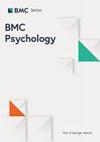根据饮用咖啡的习惯,特里尔社会压力在线测试的唾液皮质醇反应无明显差异
IF 2.7
3区 心理学
Q1 PSYCHOLOGY, MULTIDISCIPLINARY
引用次数: 0
摘要
咖啡在世界各地被广泛饮用。在日本,咖啡是一种 "Shikohin"(为调味而非营养而饮用)。有几项医学研究报告称,饮用咖啡有益,但也有研究表明,饮用咖啡对心理方面的有益影响微乎其微。通过喝咖啡摄入大量咖啡因的习惯可能会提高个人在压力环境下的短期适应能力,但从长远来看可能会让人精疲力竭。我们假设,习惯喝大量咖啡的人会有较低的恢复力得分和较高的急性应激反应。日本成年男性填写了一份问卷,其中包括复原力量表和志贺芬的饮用习惯。实验参与者从调查对象中招募,并根据每天的咖啡饮用量分为三组:无咖啡组、低咖啡组和高咖啡组。所有参与者都被要求参加特里尔社会压力在线测试(TSST-OL)。在实验期间的八个时间点测量主观压力和唾液皮质醇浓度。每组有 16 人参与分析(平均年龄 = 46.10 岁,标准差 = 12.58)。统计分析显示,暴露于 TSST-OL 后,主观压力和唾液皮质醇浓度均显著增加。但是,各组之间没有明显差异,假设未得到支持。这项研究证明了 TSST-OL 的有效性和稳定性。此外,饮用咖啡的习惯与恢复力量表评分或急性应激反应没有明显关系。本文章由计算机程序翻译,如有差异,请以英文原文为准。
No significant difference in salivary cortisol response on the Trier Social Stress Test-Online based on coffee consumption habits
Coffee is widely consumed around the world. In Japan, it is a type of “Shikohin” (consumed for flavor, not nutrition). Several medical studies have reported the beneficial effects of coffee consumption, whereas others suggest that these beneficial effects on psychological aspects are marginal. The habit of consuming large amounts of caffeine through coffee may improve short-term resilience in stressful situations and may exhaust individuals in the long term. We hypothesized that people who habitually drink high amounts of coffee would have lower resilience scores and higher acute stress responses. Adult Japanese men completed a questionnaire that included a resilience scale and Shikohin consumption habits. Experimental participants were recruited from the survey respondents and classified into three groups based on their coffee consumption per day: No Coffee, Low Coffee, and High Coffee. All participants were asked to join the Trier Social Stress Test-Online (TSST-OL). Subjective stress and salivary cortisol concentrations was measured at eight time points during the experiment. There were 16 participants in each group for the analysis (mean age = 46.10 years, SD = 12.58). Statistical analysis showed that both subjective stress and salivary cortisol concentrations significantly increased following TSST-OL exposure. However, there were no significant differences among the groups, and the hypotheses were not supported. This study demonstrated the effectiveness and stability of the TSST-OL. Additionally, coffee consumption habits were not significantly related to resilience scale scores or acute stress responses.
求助全文
通过发布文献求助,成功后即可免费获取论文全文。
去求助
来源期刊

BMC Psychology
Psychology-Psychology (all)
CiteScore
3.90
自引率
2.80%
发文量
265
审稿时长
24 weeks
期刊介绍:
BMC Psychology is an open access, peer-reviewed journal that considers manuscripts on all aspects of psychology, human behavior and the mind, including developmental, clinical, cognitive, experimental, health and social psychology, as well as personality and individual differences. The journal welcomes quantitative and qualitative research methods, including animal studies.
 求助内容:
求助内容: 应助结果提醒方式:
应助结果提醒方式:


